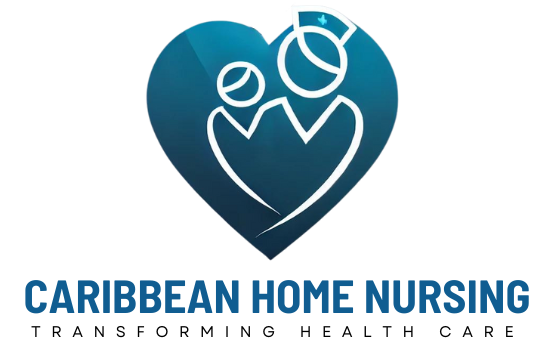Caring for disabled patients requires specialized attention, compassion, and professional medical support. In Trinidad and Tobago, home nursing services for disabled patients have become essential in ensuring quality healthcare for individuals who need long-term care. Families seeking professional in-home nursing support can benefit from specialized caregivers trained to handle various medical and non-medical needs.
This guide explores everything about home nursing for disabled patients in Trinidad, highlighting the services available, the benefits of home healthcare, factors to consider when choosing a provider, and answers to common questions.
Understanding Home Nursing for Disabled Patients
Home nursing services provide professional medical and personal care to disabled individuals in the comfort of their own homes. These services are designed to cater to patients with physical, mental, or developmental disabilities that require continuous medical attention and support.
Why Home Nursing is Essential for Disabled Patients
Personalized Care – Each patient receives a customized care plan based on their medical needs and daily activities.
Comfort and Familiarity – Patients remain in a comfortable and familiar environment, reducing stress and anxiety.
One-on-One Attention – Unlike hospitals or nursing homes, home care ensures focused attention.
Family Involvement – Family members can actively participate in their loved one’s care.
Cost-Effective – Home care can be more affordable than long-term hospital stays.
Independence and Dignity – Patients maintain a sense of control over their daily lives.
Home Nursing Services Available for Disabled Patients in Trinidad
- Medical Home Care
- Medication administration
- Wound care and dressing changes
- Pain management
- IV therapy
- Oxygen therapy
- Personal Care Assistance
- Bathing and grooming
- Dressing assistance
- Toileting and incontinence care
- Mobility support
- Physical and Occupational Therapy
- Rehabilitation for stroke patients
- Exercise programs to maintain muscle strength
- Adaptive skill development for daily activities
Nutritional Support and Meal Planning
Specialized meal plans based on dietary restrictions
Feeding assistance for patients with swallowing difficulties
Monitoring of nutritional intake
Companion Care and Emotional Support
Conversation and social engagement
Emotional and psychological support
Recreational activities for mental stimulation
Palliative and Hospice Care
Comfort care for terminally ill patients
Pain management and symptom relief
Emotional support for families
24/7 Live-in or Hourly Nursing Care
Round-the-clock support for patients with severe disabilities
Short-term and long-term home care plans
How to Choose the Right Home Nursing Service in Trinidad
When selecting a home nursing provider for a disabled loved one, consider the following factors:
Qualifications and Licensing
Ensure that the nurses and caregivers are certified and licensed.
Check if the agency meets the standards of the Ministry of Health in Trinidad and Tobago.
Experience with Disabled Patients
Look for caregivers with specific experience in handling disabled individuals.
Ask for references from past clients.
Custom Care Plans
The provider should offer personalized care plans based on the patient’s condition.
Availability and Flexibility
Choose a provider that offers 24/7 care if needed.
Ensure caregivers can adjust their schedules as required.
Affordability and Payment Options
Compare costs among different service providers.
Check if insurance covers home nursing services.
Benefits of Hiring a Home Nurse for a Disabled Patient
- Improved Quality of Life
- Personalized attention leads to better health outcomes.
- Reduced Hospital Visits
- Home care minimizes the need for frequent hospital admissions.
- Enhanced Emotional Well-being
- Patients feel more secure in their own homes.
- Family Support and Education
Caregivers educate family members on handling medical emergencies.
Common Challenges in Home Nursing Care
Finding the Right Caregiver – Selecting a reliable and qualified nurse can be challenging.
Financial Costs – Home care can be expensive, though often more affordable than institutional care.
Medical Equipment Needs – Some conditions require specialized home medical equipment.
Adjusting to In-Home Care – Patients may take time to adapt to having caregivers in their space.
FAQs About Home Nursing for Disabled Patients in Trinidad
Q. What does a home nurse do for disabled patients?
Ans. Home nurses provide medical and personal care, including medication administration, wound care, mobility support, and hygiene assistance.
Q. How much does home nursing cost in Trinidad?
Ans. The cost varies based on services required, duration, and level of care needed. On average, home nursing services range from TT$50 to TT$300 per hour.
Q. Can I get financial assistance for home nursing care?
Ans. Some government programs and insurance plans provide coverage for home healthcare services. Check with your provider.
Q. How do I know if my loved one needs home nursing?
Ans. If a disabled person struggles with daily activities, medical management, or mobility, home nursing can significantly improve their quality of life.
Q. Are home nurses in Trinidad trained to handle emergencies?
Ans. Yes, certified home nurses are trained in CPR, first aid, and emergency response protocols.
Q. Do home nursing services include mental health support?
Ans. Some providers offer emotional and psychological support for disabled patients dealing with depression, anxiety, or other mental health concerns.
Q. What is the difference between home nursing and home health aides?
Ans. Home nurses provide medical care, while home health aides focus on personal assistance and companionship.
Q. How do I hire a reliable home nurse?
Ans. Research providers, check reviews, and request references to find a trustworthy nurse.
Q. What disabilities qualify for home nursing in Trinidad?
Ans. Home nursing is available for various conditions, including mobility impairments, cerebral palsy, multiple sclerosis, paralysis, and chronic illnesses.
Q. Can home nursing be temporary?
Ans. Yes, services can be arranged for short-term recovery or long-term care, depending on the patient’s needs.
Final Thoughts On Home Nursing for Disabled Patients in Trinidad
Home nursing for disabled patients in Trinidad is an essential service that promotes health, independence, and comfort. By choosing the right caregiver, families can ensure that their loved ones receive quality care in the most familiar environment—their home.







